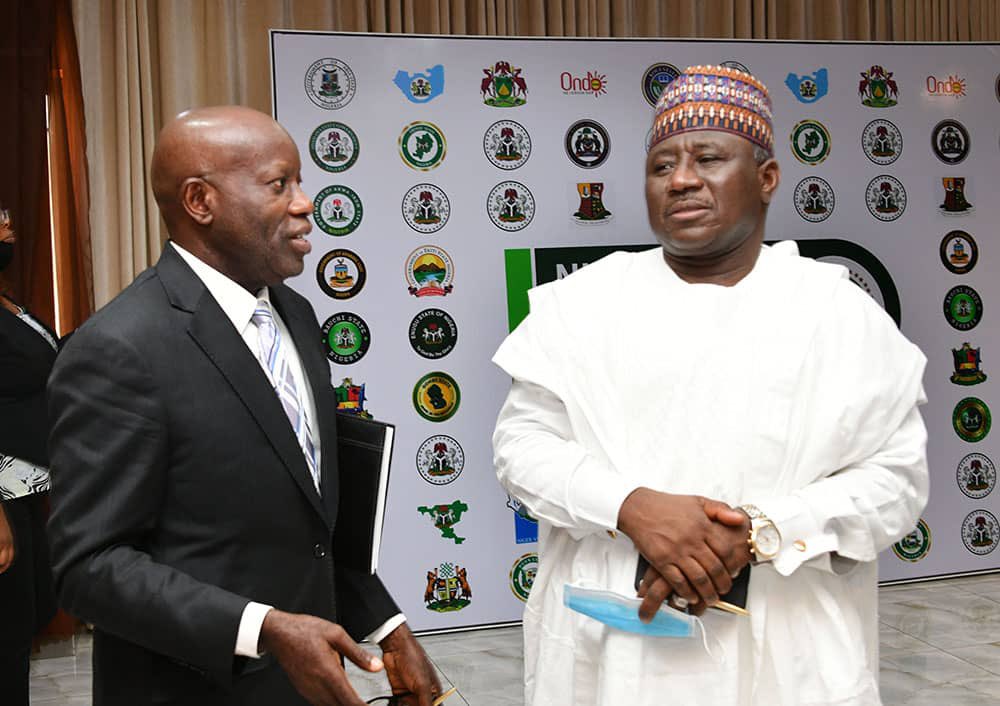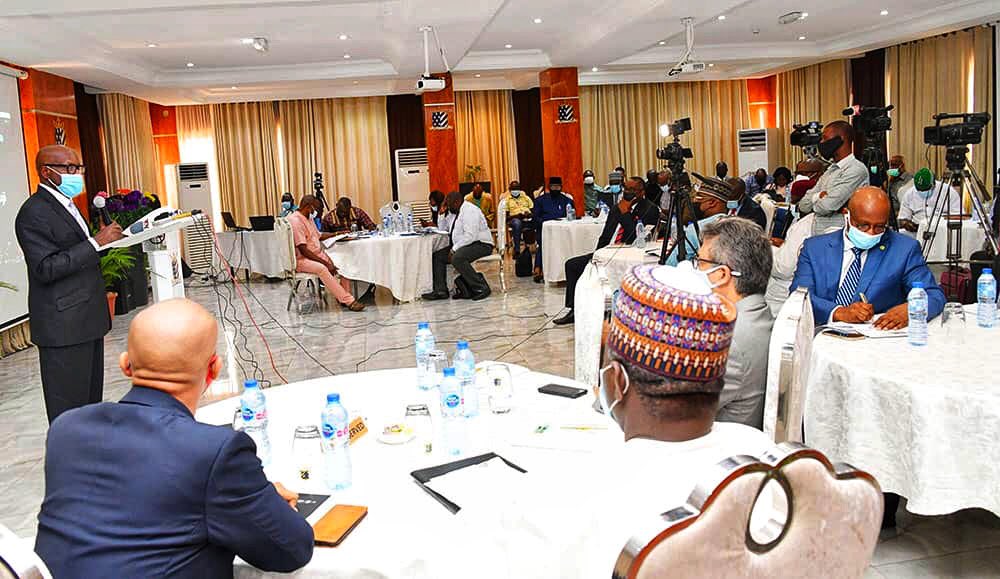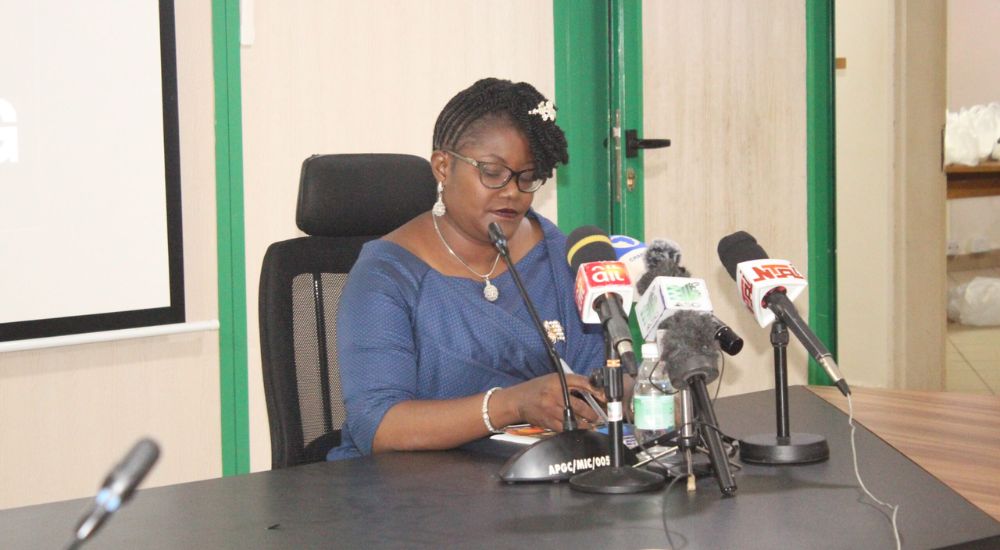In a bid to shore up their revenue to meet budgetary gaps, federal and state governments have been urged to embrace technology in revenue administration processes.
The Executive Chairman of the Federal lnland Revenue Service (FIRS), Mr Muhammad Nami, said technology was a major enabler for enhanced and sustainable revenue generation in the wake of dwindling resources in the country.
He spoke at the opening of the maiden Technology and Tax Event organized by the Nigerian Governors Forum (NGF) supported by the World Bank and the International Centre for Tax and Development in Abuja.
The theme was “Leveraging on technology solution for enhanced administration of indirect taxes” at the 145th Joint Tax Board Meeting.
Harping on improving the revenue to augment the shortfall in allocations from the Federation Account, Nami said taxation all over the world has always been the most reliable and sustainable source of government revenue if well harnessed and effectively administered.
Nami, who was represented by FIRS Coordinating Director, Mr Hamman Abubakar, expressed concern over the current financial crisis facing the country, pointing ou that over-dependence on oil revenue had created problems for the economy.
“For us as a mono-product economy, the reliance on oil revenue in the previous years has exposed our dear country to huge revenue challenges and resulted in poor budget implementation across the three tiers.
“Therefore, proffering solution to these nagging revenue challenges requires a deliberate strategic action plan hence the need and justification for today’s event.
“Taxation, in most advanced jurisdictions, has gone beyond the bricks-and-mortar model but relies more on data and intelligence which are driven by technology.
“The adoption of technology in revenue administration processes is crucial and a major enabler for enhanced and sustainable revenue generation in a globalized and knowledge-driven world.
“Therefore, revenue authorities at all levels must adopt automated processes and embrace e-solutions both in their internal operations and in dealing with the taxpayers within their respective jurisdictions.
“The need to embrace technology in tax administration was the basis for the choice of the theme,” the FIRS boss said.
He added:”The JTB meeting harped on the need to further broaden and increase revenue generation at all levels by leveraging on ICT and that the adoption of technology will optimize and harness the various taxes and plug revenue leakages.
“The FIRS as the country’s leading tax institution has taken some steps at automating its processes from e-registration, e-filing, e-payment, e-receipt, e-collection and e-TCC, to ensure that we improve on collections.
“We have recently launched our proprietary e-solution platform – TaxPro Max- a solution developed by the FIRS for effective and integrated e-tax administration.
” There is also the ongoing automation and real-time VAT collection and reporting system in addition to our leveraging on technology in enhancing the exchange of information with taxpayers as provided in the Finance Act 2020.”
Nigeria Governors’ Forum stressed the need for taxpayer-friendly and technology-driven revenue administrations in all the 36 states.
The Director General, Mr Asishana Okauru advised states to put necessary measures in place to mitigate associated risks.

“The goal for us is to help facilitate the scale up of modern, taxpayer-friendly, and technology-driven revenue administrations in all States of the federation that will be capable of providing world-class services; characterized by efficient, paperless operations, and equipped with ICT-enabled risk-based enforcement capable of optimising their revenue mobilization strategies,” he said.
The COVID-19 pandemic, he noted, had made it imperative for all revenue administrations to move to a digital level.
Okauru said:”Even in the African continent, there have been several innovations which have been forced by the pandemic – including the provision of social assistance through mobile phone on a larger scale than ever before, as well as increased technology-based learning.
“2020 did for technology services what the 1930s did for financial services – with the growth in the regulation of commercial, investment banks, stock and commodity exchanges. We believe tax administration should be no different.
“We have taken this step to bring together technology providers, service providers and researchers in the tax space into one network to take advantage of the innovation that is taking place.
“We will continue to do our best to bring such collaborations together to provide opportunities for States to benefit from a global perspective and to ensure no state is left behind.
“Overall, digitization does not only bring about efficiency, but it provides opportunities for more people to be involved.”
Okauru tasked tax authorities on internet-based business support systems and payment platforms for the automation of all back-end operational processes and payments across all revenue streams.
“From our research last year, we already know that most contact-intensive taxes are at risk, given the lessons we learnt during the period of the lockdown where taxes collected from contact-intensive taxes fell by an average of 40 percent across all States in Nigeria.
“Coupled with a weak environment for tax policy and tax legitimacy, low technological integration in tax administration has undermined efforts to mobilise domestic revenues in the country.
“This has undermined the capacity of tax authorities to collect taxes efficiently and the ability of taxpayers to meet their tax responsibilities conveniently.
“Historically, many governments have taken the path of least resistance, maintaining tax systems that allow them to maximise whatever limited options are available rather than expanding into digital and more efficient tax systems.
“Amidst this transformation, we also recognise risks of data ownership, data protection and cyber security. This each government must envisage.
“It would require a strong in-house IT team and an experienced legal department that will help protect the interest of all parties, including taxpayers,” the DG said.
READ ALSO: Nigeria’s Federal Executive Council approves 2020 Finance Bill for 2021 budget






















Leave a comment